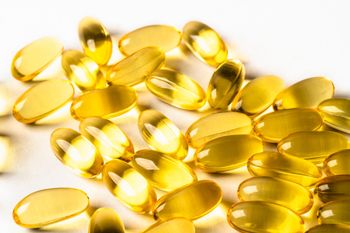
Recent study devises “omega-3 calculator” to help researcher determine proper EPA and DHA doses
The equation the researchers devised might make it possible to determine how much omega-3 EPA and DHA is needed to elevate the omega-3 index to the desired level.
A recent study published in the
This is significant because there have been wide differences in study results, likely due to a wide variation of dosages, with lower doses having little to no effect on EPA and DHA in the blood, while higher doses have significantly better results. This has left many to question the efficacy of omega-3 supplementation. Using the method outlined in the study might help researchers achieve the results they are looking for. “Hopefully, ensuring the dose of EPA and DHA is high enough to reach a target omega-3 index level will clarify whether or not EPA and DHA are effective,” said Kristina Harris Jackson, PhD, RD, co-lead author of the study, in a press release.
The model equation is able to estimate the final omega-3 index of a population based on the dosage of omega-3 EPA and DHA, and the baseline omega-3 index. For example, a population with a baseline omega-3 index of 4.9% that is given 840 mg EPA and DHA per day for 13 weeks, as a one-gram ethyl ester capsule, would reach an omega-3 index of about 6.5%. One can also calculate the approximate dosage necessary to achieve a mean omega-3 index of 8% in 13 weeks. According to the study, for a population with a baseline omega-3 index of 2%, 2200 mg of EPA and DHA is required, while for a baseline omega-3 index of 4% and 6%, 1500 mg and 750 mg of EPA and DHA is required, respectively.
The format also influences the dosage. For example, in ethyl ester form, reaching 8% omega-3 index in 13 weeks with a baseline omega-3 index of 4% would require 2500 mg per day, while a triglyceride form would require about 1750 mg per day.
Newsletter
From ingredient science to consumer trends, get the intel you need to stay competitive in the nutrition space—subscribe now to Nutritional Outlook.





